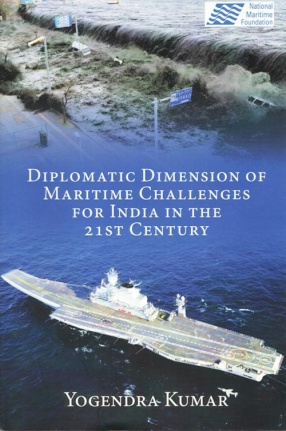The ebbs and flows of Indian history can also be charted through the country’s “maritime blindness” – its onset and the national endeavour to overcome it. The story of developing India’s maritime capacity, since independence, is also about the kind of international and regional footprint it needs to have.
In this book, the author discusses India’s new and old maritime challenges and contextualises them in terms of its inherent institutional strengths to cope with their bewildering complexity. Their complexity is not just due to their sheer scale; the degrading institutional capacities, within countries and internationally, act as threat multipliers. The dynamics of global geopolitics, the seismic perturbations of global economy, and the dizzying pace of technology belie presuppositions for global future; all strategic analysts recognise our current, persisting conundrums.
Taking into account the country’s critical strategic weight in the maritime domain, the author suggests an approach – about the right ‘mix’ of the ‘traditional’ and the ‘non-traditional’ threats – in the institutional agendas of various governance mechanisms concerning different water bodies, especially the Indian Ocean Region, which also demands of India both hardware and software capacities, including diplomatic. He concludes that the effect of such an approach would be stabilising, consonant with the civilisational vision of the founders of the modern Indian nation.








There are no reviews yet.